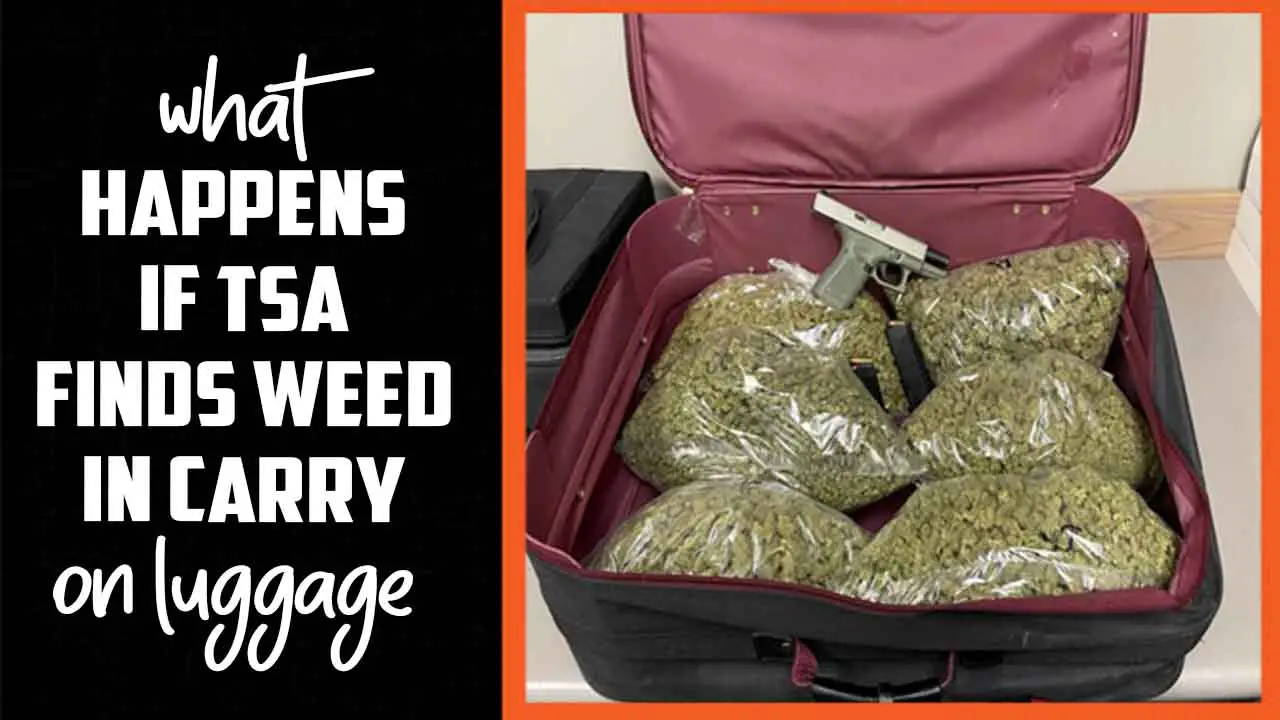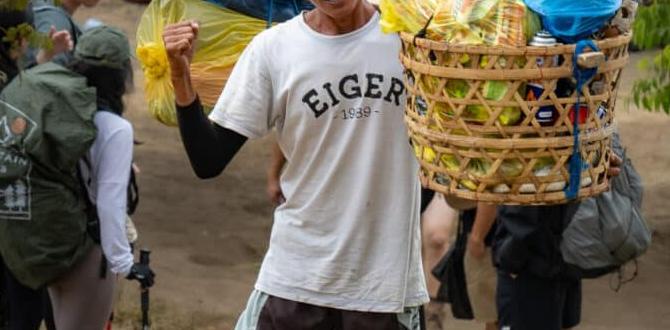Planning an Accra winter trip is surprisingly easy! This beginner’s guide covers everything you need: weather insights, packing essentials, visa tips, and must-do activities to ensure a stress-free and enjoyable experience in Ghana’s vibrant capital. Get ready for an unforgettable adventure with minimal fuss.
Thinking about a trip to Accra when it’s chilly back home? The idea of escaping to a warmer climate is wonderful, but planning can sometimes feel a bit overwhelming, especially if it’s your first time. You might wonder about the weather, what to pack, or even how to get around. But don’t worry! Accra is a fantastic destination, and with a little preparation, your winter escape can be incredibly smooth and full of amazing experiences. We’re here to guide you through every step, making planning feel less like a chore and more like the start of your exciting journey.
Understanding Accra’s “Winter” Climate
When we talk about “Accra in winter,” it’s important to know it’s not winter as you might imagine it in colder regions. Accra, located near the equator, doesn’t experience a cold season. Instead, its “winter” months (roughly November to March) are characterized by the dry season. This means you can expect pleasant, sunny days with lower humidity compared to the rainy season. It’s often considered one of the best times to visit!
What to Expect in Terms of Temperature and Sunshine
During the dry season, daytime temperatures in Accra typically range from the high 70s to mid-80s Fahrenheit (around 25-30°C). While it’s warm and sunny, the humidity is relatively lower, making it feel more comfortable for exploring. Nights are usually cooler and pleasant, perfect for enjoying outdoor dining or evening strolls. Expect plenty of sunshine, so packing sunscreen and hats is a must!
Humidity Levels and Wind Patterns
Lower humidity is a key feature of Accra’s dry season. This reduction in moisture in the air contributes to the overall comfortable feeling, making the heat less oppressive. You might also notice a gentle breeze, especially along the coast, which further enhances the pleasant weather. This contrasts sharply with the muggy conditions often found during the rainy periods.
Essential Travel Preparations for Your Accra Trip
Getting ready for your trip involves a few key steps to ensure a smooth journey. From official documents to making sure you have everything you need for comfort on the go, these preparations are straightforward and will significantly enhance your travel experience.
Visa and Entry Requirements
Before you book your flight, it’s crucial to check the visa requirements for your nationality. Many visitors will need a visa to enter Ghana. The best place to start is by visiting the official website of the Embassy of Ghana in your country. They will have the most up-to-date information on application procedures, required documents (like passport photos, proof of funds, and an itinerary), and processing times. Applying well in advance is always recommended to avoid any last-minute stress.
Documentation Checklist
To make your arrival as seamless as possible, keep all your important documents organized and easily accessible. Here’s a quick list:
- Passport (valid for at least six months beyond your intended stay)
- Visa (if required)
- Flight confirmations
- Hotel reservations
- Proof of yellow fever vaccination (often required)
- Travel insurance details
- Emergency contact information
Health and Vaccinations
Consulting your doctor or a travel clinic about recommended vaccinations and health precautions for Ghana is advisable. The yellow fever vaccine is typically mandatory for entry. Other common recommendations might include Hepatitis A and Typhoid. It’s also wise to pack a basic first-aid kit, including any personal medications you regularly take. For any health needs, including adult or child diapers for added comfort and security during travel, planning ahead ensures you have reliable solutions. Many travel-friendly options are designed for discretion and ease of use, giving you peace of mind.
Packing Smart for Accra’s Dry Season
Packing light and smart is key to enjoying your trip without feeling weighed down. For Accra’s dry season, think breathable fabrics, sun protection, and comfortable clothing suitable for warm weather. Here’s a breakdown of what to consider:
Clothing Essentials
Opt for lightweight, breathable fabrics like cotton, linen, or moisture-wicking blends.
- Lightweight shirts and tops
- Comfortable shorts and skirts
- Lightweight trousers or capris
- A light jacket or sweater for cooler evenings (though often not necessary)
- Swimwear if your accommodation has a pool or you plan to visit the beach
- A few slightly dressier outfits for evenings out
Remember that Ghanaians dress modestly, especially when visiting religious sites. It’s respectful to cover shoulders and knees in such instances.
Footwear Choices
Comfort is paramount when exploring a new city.
- Comfortable walking shoes or sneakers are essential for sightseeing.
- Sandals or flip-flops are great for relaxing or beach days.
- Avoid bringing brand-new shoes; ensure they are well broken-in.
Sun Protection and Accessories
The sun can be strong, so protecting yourself is important.
- Wide-brimmed hat or cap
- Sunglasses
- High-SPF sunscreen
- Insect repellent (especially for evenings)
- A reusable water bottle to stay hydrated
- A small backpack or tote bag for day trips
Special Considerations for Comfort and Convenience
For some travelers, managing personal incontinence needs during a trip is a priority. Packing discreet and comfortable adult diapers or child diapers (if traveling with children) can significantly reduce stress. Look for options that are absorbent, breathable, and easy to change, ensuring you feel secure and can focus on enjoying your vacation. Brands offering overnight absorbency or leak-proof features can be particularly valuable for long travel days or when access to facilities might be limited.
Navigating Accra: Transportation and Getting Around
Getting around Accra is an adventure in itself, offering a glimpse into the city’s lively pace. There are several transportation options, each with its own character and cost.
Taxis and Ride-Sharing Services
Taxis are abundant and a common way to get around. It’s advisable to agree on a fare before starting your journey, especially if the meter isn’t used. Ride-sharing apps like Uber and Bolt are widely available in Accra and often provide a more transparent and straightforward pricing experience. They are excellent options for solo travelers or those who prefer predictable costs.
Public Buses and Tro-tros
For a truly local experience, consider using public buses or “tro-tros.” Tro-tros are shared minibuses that follow set routes and are incredibly affordable. They can be crowded and may not be the most comfortable option for everyone, but they offer an authentic way to see the city. Be prepared for a lively atmosphere!
Car Rentals
Renting a car is an option if you prefer to have your own wheels and explore at your own pace. However, be aware that Accra traffic can be challenging, and driving standards may differ from what you’re used to. If you opt for this, ensure you have a valid international driving permit and consider getting a GPS device or using navigation apps.
Top Attractions and Activities in Accra
Accra is a city rich in history, culture, and vibrant energy. While the weather in the dry season is perfect for exploring, here are some must-visit spots:
Historical and Cultural Landmarks
- Independence Square: A significant national monument celebrating Ghana’s independence.
- Kwame Nkrumah Mausoleum: The final resting place of Ghana’s first president, a key figure in African independence.
- National Museum of Ghana: Explore the country’s rich history and diverse cultures through its extensive collections.
- Jamestown: A historic fishing neighborhood known for its vibrant street art, colonial architecture, and lively atmosphere.
Markets and Shopping
- Makola Market: Experience the hustle and bustle of one of West Africa’s largest open-air markets. It’s a sensory overload in the best way possible – great for souvenirs, local crafts, and everyday goods.
- Art Centre: A more curated experience for buying African art, crafts, and textiles.
Beaches and Relaxation
Accra boasts several beautiful beaches offering a chance to unwind by the Atlantic Ocean.
- Labadi Beach: Popular for its lively atmosphere, music, and food stalls.
- Bojo Beach: A picturesque beach accessible by boat, offering a more tranquil escape.
- Kokrobite Beach: Further out, known for its relaxed vibe and drumming circles.
Day Trips and Excursions
If you have extra time, consider a day trip outside Accra.
- Kakum National Park: Famous for its canopy walkway suspended high in the trees.
- Cape Coast Castle: A UNESCO World Heritage site offering a poignant look into the history of the transatlantic slave trade.
Food and Drink in Accra
Ghanaian cuisine is flavorful, diverse, and a true highlight of any visit. Prepare your taste buds for a treat!
Must-Try Local Dishes
Accra offers a fantastic culinary scene, from street food to upscale restaurants. Here are some dishes you absolutely must try:
| Dish | Description | Where to Find |
|---|---|---|
| Fufu | A pounded dough of cassava and plantain, served with a flavorful soup. | Local chop bars and restaurants. |
| Jollof Rice | A popular West African rice dish cooked in a rich tomato-based sauce. | Restaurants, street food vendors, parties. |
| Banku and Tilapia | Fermented corn dough balls served with grilled tilapia and hot pepper sauce. | Coastal areas, chop bars. |
| Waakye | Rice and beans cooked with sorghum leaves, giving it a reddish hue, served with various accompaniments. | Street food stalls, local eateries. |
| Kelewele | Spicy fried plantains, a popular snack. | Street food vendors. |
Staying Hydrated
The warm weather means staying hydrated is important. Drink plenty of bottled water. Local beverages like Sobolo (a hibiscus drink) and Malta Guinness are also refreshing options. When eating out, always opt for bottled or purified water.
Tips for a Safe and Comfortable Trip
Safety and comfort are paramount to enjoying your travels. Accra is generally safe for tourists, but like any large city, it’s wise to be aware of your surroundings and take sensible precautions.
General Safety Advice
- Be aware of your surroundings, especially in crowded areas like markets.
- Keep valuables secure and out of sight.
- Avoid walking alone in unfamiliar areas at night.
- Use reputable taxi services or ride-sharing apps.
- Inform someone of your travel plans and check in regularly.
Staying Healthy on the Go
Beyond the recommended vaccinations, here are a few more tips:
- Drink only bottled or purified water.
- Be cautious with street food; choose vendors that appear clean and busy.
- Protect yourself from the sun and heat.
- Carry a hand sanitizer.
- If you experience any health concerns, seek medical attention promptly.
Managing Personal Needs with Confidence
For those who require incontinence products, planning ahead ensures you can maintain comfort and dignity throughout your trip. Carrying a discreet pouch with adult diapers or child diapers can prevent worries about availability or finding suitable products while you’re out exploring. Many modern options are designed for maximum absorbency and odor control, allowing you to fully immerse yourself in the Accra experience without compromise. Packing a few extra for longer outings or travel days is always a smart move.
Frequently Asked Questions About Accra Winter Trips
Q1: What is the weather like in Accra from November to March?
Accra’s “winter” (November to March) is actually its dry season. Expect warm, sunny days with temperatures between 25-30°C (77-86°F) and lower humidity. It’s generally considered very pleasant weather for visiting.
Q2: Do I need a visa to visit Ghana?
Most nationalities require a visa to enter Ghana. It is essential to check the specific visa requirements for your country of citizenship with the Embassy of Ghana in your country well in advance of your travel dates.
Q3: What are the essential vaccinations for Ghana?
The Yellow Fever vaccine is typically mandatory for entry into Ghana. It is also recommended to consult your doctor or a travel clinic about vaccinations such as Hepatitis A and Typhoid, and to get advice on malaria prevention.
Q4: Is it safe to drink tap water in Accra?
No, it is not recommended to drink tap water in Accra. Always opt for bottled water or water that has been purified. Be cautious with ice in drinks unless you are sure it’s made from purified water.
Q5: What kind of currency is used in Ghana?
The currency in Ghana is the Ghanaian Cedi (GHS). It’s advisable to carry some local currency for smaller purchases, but credit cards are accepted in larger hotels, shops, and restaurants. ATMs are also widely available.
Q6: How can I get around Accra?
You can get around Accra using taxis, ride-sharing apps (like Uber and Bolt), public buses, or the local minibuses known as “tro-tros.” Car rentals are also available for those who prefer to drive themselves, though traffic can be heavy.
Q7: What should I pack for Accra in the dry season?
Pack lightweight, breathable clothing, comfortable walking shoes, sun protection (hat, sunglasses, sunscreen), insect repellent, and any personal medications. Consider modest attire for visiting religious sites.
Conclusion
Your Accra winter trip doesn’t need to be daunting to plan. By understanding the pleasant dry season climate, preparing your essential documents and health needs, packing smart with comfortable and suitable clothing, and familiarizing yourself with transportation options, you’re well on your way to an enriching experience. From exploring historical sites and vibrant markets to savoring delicious local cuisine and relaxing on the coast, Accra offers a unique blend of culture and adventure. With effortless planning guided by these tips, you can embrace the warmth, energy, and hospitality of Ghana’s capital with confidence and excitement.






